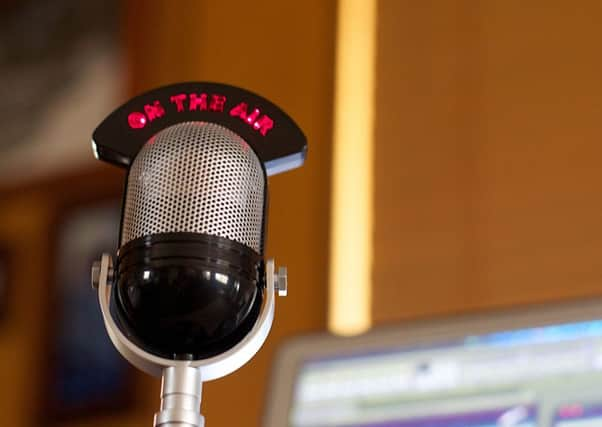Clare Todd: How to get the most out of broadcast interviews
This article contains affiliate links. We may earn a small commission on items purchased through this article, but that does not affect our editorial judgement.


Some items are of more interest than others but what always stops me in my tracks is a live interview going spectacularly wrong – at least as far as the interviewee is concerned.
I stop what I am doing, turn up the volume, and listen to the back and forth, sometimes with amusement but more often with incredulity. As a communicator of 25 years’ standing, it’s painfully clear to me that the person squirming in the studio or stuttering down the line has not properly prepared or more specifically been media-trained to cope with this high-pressure situation that is unlike any other conversation they will have.
Advertisement
Hide AdAdvertisement
Hide AdWhile many people are skilled and confident in media situations, I have lost count of the number of senior people who shy away from broadcast interviews when asked to step in front of the microphone or camera. They are happy to provide a quote for a release, of course, but ask them to follow this up with a broadcast interview and they run for cover, mumbling about a forgotten dental appointment.
Some lucky people are naturally good at media interviews. But for the rest of us mere mortals, we have to learn how to handle them. And the good news is, it’s not rocket science.
The approach is a bit different depending on whether an interview is live or recorded but the principles are the same. The first is to find out – or work out – what you are going to be asked and in what role you are being interviewed – industry expert, passive witness or even villain.
The one question that is often missed is finding out who else is being interviewed. Is your interview standalone or are you being pitted against the opposite perspective? Broadcasters in particular are duty-bound to demonstrate balance, so sharing conflicting views is standard practice. Much better to know the context of other interviewees so you are not caught on the back foot live on air.
While Theresa May’s “strong and stable” message became a negative, it’s still important to remember an interview is not a normal conversation, so be really clear on the two or three key points you want to convey – and make them quickly. Finally, practise the interview in advance.
Of course, there’s a bit more to it than that, and that’s where media training comes in. A decent media training package will include the above and more, ensuring that your senior team is prepared to represent the organisation in a professional manner. External trainers will also flag up any industry jargon that would prevent people understanding what you are saying. Rail bosses used to talk about “strengthening trains” until it was pointed out to them that “adding carriages” might make more sense to passengers.
Advertisement
Hide AdAdvertisement
Hide AdIf you decide to invest in media training make sure that the content suits the likely needs of your organisation. For example, you may not need to practise in an expensive recording studio. All too often, one reporter will use their smartphone and a plug-in microphone. So look out for a company that has moved with the digital times.
And finally – a heartfelt plea here – please hold the training before you are facing a crisis or damage-limitation. We can help you either way, but being prepared makes practical and financial sense. The so-called “golden hour” – the chance to get prepared before a big story breaks – no longer exists thanks to social media. If you are finding out, chances are so are your audiences.
Like it or not, your customers and stakeholders are influenced by what they see, read and hear about you and your organisation on media and social media channels. They may not read your annual report, but they will remember the time you were skewered live on air over the nation’s breakfast tables.
• Clare Todd is a consultant at Perceptive Communicators